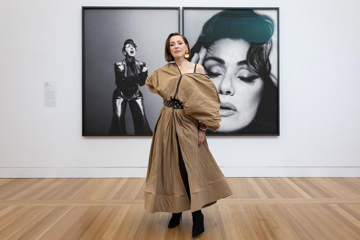Why Okkervil River Should Hate The Fucking Eagles, Man
Don Henley is not too keen on Okkervil River covering his songs.


Austin-based indie outfit Okkervil River are classic music nerds, and since 2007 they've released a series of covers collections where they reinterpret songs that have inspired them – or key tracks from artists that have been influential on their music – and made them available for free on their website.
It's known as the Golden Opportunities Mixtape series, and to coincide with their seventh studio album The Silver Gymnasium (2013) – a conceptual piece set in frontman Will Sheff's childhood home Meriden, NH during his adolescence in the mid-'80s – they released the third instalment in the series featuring five covers of artists/songs from that naffest of decades. They give their trademark aural twist to classic '80s tracks by Wang Chung, Roseanne Cash, Cyndi Lauper, George Benson and… at one point… Don Henley.
“Don Henley made me take down a cover of The End Of The Innocence that I'd had on there, which I'd rewritten – Don Henley made me take it down!” Sheff fumes with a mixture of confusion and righteous indignation.
“After that I wasn't sure if we should keep it all up there – I'm happy with those other songs, but it's kind of a bummer that he makes my work worse. I really love The End Of The Innocence sincerely, and it's a real dick move, man. I guess he's an old fashioned guy who doesn't understand. I mean the fucking thing was free! I don't really get what his issue with it was, it's not like I was making money – I figure that's all he fucking cares about anyway, know what I mean? It's not like I was making money off it, but he still made me take it down. If I was charging money for it he would get some of that money – maybe that's what it was, because people weren't paying him for it.”
Don't miss a beat with our FREE daily newsletter
The ability to offer bonus material at no cost excites Sheff, despite his mixed feelings about the modern ways of accessing music.
“But it's really nice to be able to do those downloads. I have mixed feelings about the modern ways and basically what computers have done to everything, but one of the things I think is good – because I think that there are very, very good things and there are very, very bad things – but one of the good things is because the cost of everything has gone down and the price of everything has gone down, you can have a range of work: you can have work that doesn't cost very much to make and you can give that stuff away.
“I think at the beginning of our career there was a lot of pressure on individual releases, because they were expensive. There's still pressure on the big releases, but there's an ability to create other kinds of work and let that kind of find its own audience. And there's also the opportunity to give people stuff for free, which is very nice and I think that's very pure. I think there's a lot about art and the way it started out that we've moved away from as a society – once up a time art was all free, that was its origin.
“These days when I talk about being paid for my material, it's a bummer if you spend $80,000 to make a record and everyone's just listening to it on Spotify and you're not getting a dime back of the money that you spent. It's not about making millions, it's about not losing a ton of money.
The tradition of reinterpreting others' material stretches a long way back in the annals of music history and it's something Sheff particularly enjoys.
“It's nice to be able to do [the free covers]. It's nice to be able to recontextualise the work of other people and speak with somebody else's voice for a little bit – I think that part of it is also nice. I've also always been a big Nina Simone fan and I think that she did more covers than anyone else ever did, and she really took them to this place where they weren't even really covers anymore. It's kind of an art form, and folk music is all about that too – you'd take somebody's song and you'd change it around to make it your own, whether you did it because you misremembered the lyrics or you did it because you thought you could make it better or for whatever reason. Nina did such a phenomenal job with that in her work. I think all art on some level is like a cover anyway.
“I really hate copyright law, and I really hate property when it comes to music – to me it's a really fun opportunity to engage in that, but sometimes it pisses Don Henley off apparently.”







